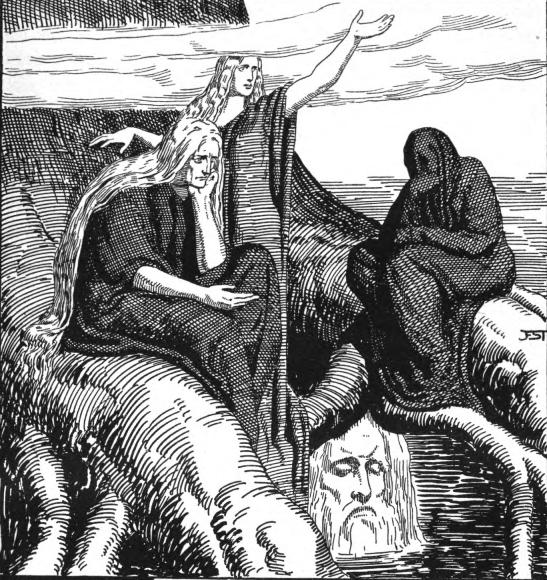Examining the philosophies of different cultures is useful for bringing into your own perspective if there is a personal connection. For the vikings, they felt personally connected to themes of strength, bravery and family that are as timeless today as they were back then.
A key theme of Old Norse philosophy was the concept of wyrd. Translating to fate, wyrd encompassed personal choices, the gods and more.
Accepting your wyrd
The phrase ‘wyrd’ comes from the Old Norse cognate urðr and tied to the Norns of Norse mythology, specifically Urd. Alongside Veronadi and Skul, Urd was responsible for deciding the fates of people and they lived beneath the world tree Yggdrasil at the Uroarbrunnr well.

In a wider context, wyrd explained that the course of one’s life was predetermined and that every choice was preordained. Even Norse gods like Odin and Thor were bound by fate, as best represented in the coming of Ragnarok and the end of the world.
The Vikings routinely tried to understand, change and shape fate to their will. For example, the magical practice of seidr could show someone what fate had in mind for them but didn’t show why the outcome would happen.
People may have struggled against their fate, yet wyrd itself has no good or bad perspective. It had no cruel or compassionate intent and was created at the direction of the Norns.
Fighting fate
From a general perspective, the vikings believed the most important thing about wyrd was that one should live the best life they could with it. No matter the outcome, one should fight with honour and charge into battle as a hero.
A fine example of this comes from the Norse gods and their attitude towards Ragnarok. Instead of raging against their fate, they charged into the fight with everything they had. It was said Odin prepared a huge army of brave human warriors in Valhalla and they stood with the leader of the Norse pantheon in the final hours.
What’s interesting about wyrd is the similarities is has with the Stoic concept of amor fati, the love of fate. It’s the idea of wishing the world to be as it is, of embracing everything that happens with aplomb. This connection demonstrates the timelessness of philosophy and the crossover potential of different themes.
Wyrd also provides a gateway for important questions in the modern day too.
When you wake up in the morning do you think that your life is predetermined? Do you try to make choices that make you a better person or do your actions harm you?
Whether you believe in fate or not, the vikings had it right with the idea of doing all that you can to live with honour, duty and good character.
For more insights into Old Norse philosophy, check out Stoic Athenaeum’s analysis of seidr.